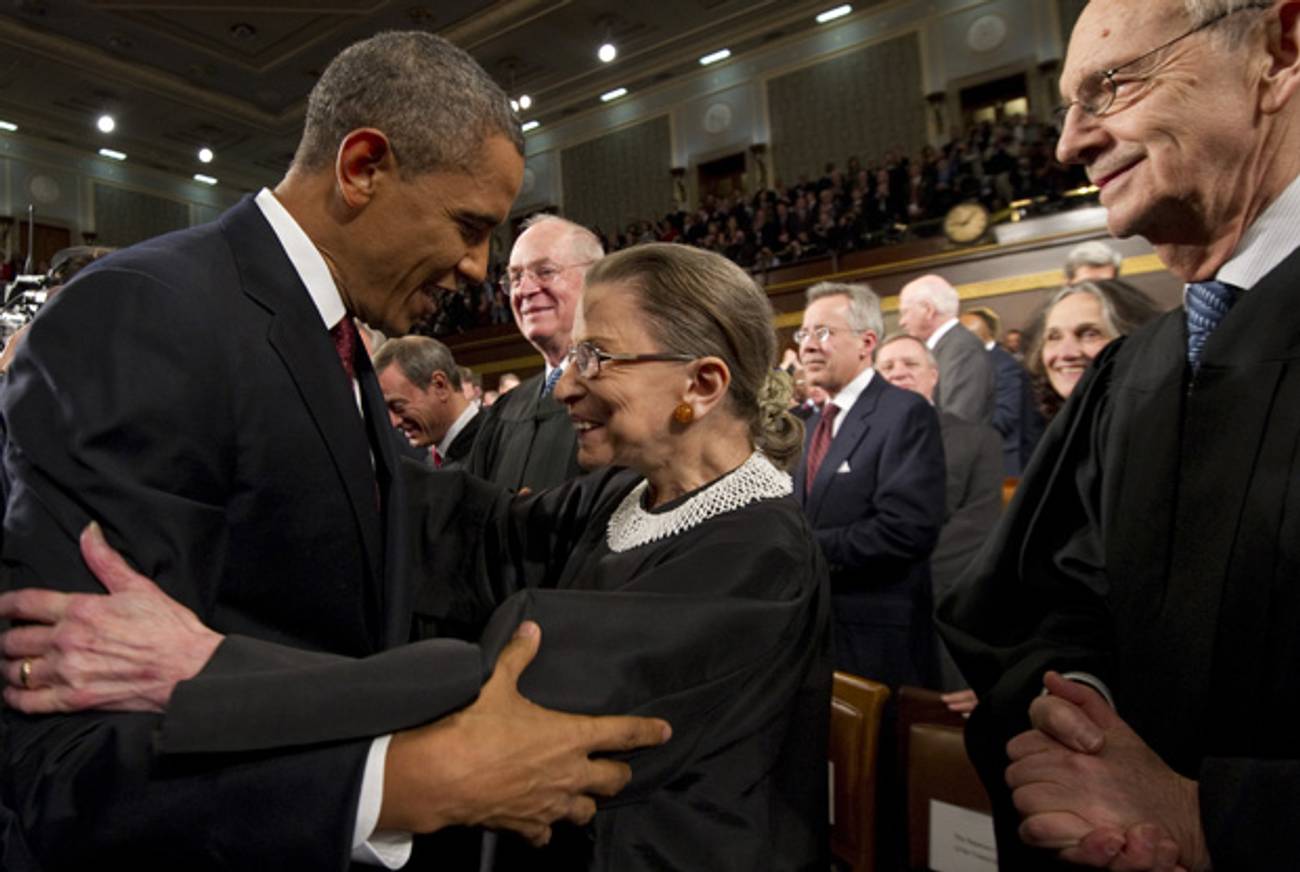In Homefront-Heavy Speech, Iran Warned
But U.S. options against nuclear program are limited




The take-away for our little corner of the world from President Obama’s State of the Union address last night would probably be this: “Let there be no doubt: America is determined to prevent Iran from getting a nuclear weapon, and I will take no options off the table to achieve that goal. (Applause.)” But pointing to that sentence misrepresents the speech, which spent the vast majority of its time on domestic measures, and in fact seemed to resemble nothing so much as late-period President Clinton in its detail and smaller scale.
And pointing to that line also masks the more complex reality. Mainly: Israel is officially antsy, as it is telling us through Ronen Bergman’s absolutely must-read New York Times Magazine feature published this morning. Israel now believes Iran has less than a year before it reaches “immunity zone,” when a military attack would no longer substantially postpone its alleged nuclear weapons program. (Yes, even Israeli officials who support the prospect of an attack admit they’d only be delaying it, for now.) The United States, perhaps reflecting its superior firepower, thinks there is more than a year of opportunity. Make no mistake: This is scary stuff. “According to Israeli intelligence,” Bergman reports, “Iran and Hezbollah have also planted roughly 40 terrorist sleeper cells across the globe, ready to hit Israeli and Jewish targets if Iran deems it necessary to retaliate.” But one can see how an Iranian bomb seems like even scarier stuff for Israel. And Bergman, in agreement with Austin Long and Anshel Pfeffer writing late last year in Tablet Magazine, predicts an Israeli attack this year. Which means what, exactly, for the United States? “Our ironclad commitment—and I mean ironclad—to Israel’s security has meant the closest military cooperation between our two countries in history,” went the president’s sole mention of the Jewish state last night.
And the U.S. options are limited, as laid out expertly by Helene Cooper this morning. In a nutshell: Even as it increases financial sanctions and imposes a vast oil embargo, the West, and particularly Europe, seems to be preparing itself to live with an Iran that would resemble Japan in lacking a nuclear weapon but possessing the means and technology to make one—the trouble being that Iran ain’t exactly Japan (which is why part of the bargain would have to be sustained inspections). The sanctions and embargo will further hurt the badly bruised Iranian economy but are as likely to push the Iranian regime up against a wall and lead it to fast develop a bomb as to break down and comply with Western wishes; ditto the covert assassinations and sabotage aimed at the weapons program. After all, Pakistan and North Korea have the bomb, and we don’t bomb them; Libya gave up its program, and we bombed the crap out of it. The debate over whether the Iranian mullahs are rational or irrational becomes less relevant if you decide that an irrational Iran would use its weapons aggressively while a rational Iran would at least move to obtain them, making the region a more unstable place. Really the only good news is that by most accounts Iran is more than a year away even from prospective Japan-status, meaning, as Jeff Goldberg argues, there’s still time to try to reach a deal. Unless Israel bombs Iran.
In public, Israel has essentially committed itself to not accepting even a Japan-like Iran (and can you blame it?). Yesterday, Prime Minister Netanyahu marked International Holocaust Remembrance Day by imploring the world not to let Iran commit a second Shoah, while U.N. Ambassador Ron Prosor chastised the U.N. Security Council (to its face! he’s got a pair!) for its inaction on the Iran question. The untidy scenario in the previous paragraph of a precarious, U.S.-led balancing act would be very rapidly mooted by Israeli jets screaming across the Qom, Natanz, and Bushehr skies.
As for last night’s speech, the other notable Jewish content came upon the president’s ceremonial entrance, which involved him adorably hugging not one but two wonderful Jewish women. Above is his greeting of Justice Ruth Bader Ginsburg, and here’s the other:
I can’t wait for Rep. Gabrielle Giffords to run for office again. She shall return.
President Obama’s State of the Union Address [NYT]
Will Israel Attack Iran? [NYT Magazine]
Sanctions Against Iran Grow Tighter, but What’s The Next Step? [NYT]
How a Nuclear War Would Start in the Middle East [Atlantic Goldblog]
Israel to Iran: Tomorrow Will Be Too Late for Action Against Iran [Haaretz]
Related: Will They? [Tablet Magazine]
Can They? [Tablet Magazine]
Marc Tracy is a staff writer at The New Republic, and was previously a staff writer at Tablet. He tweets @marcatracy.